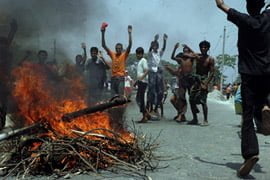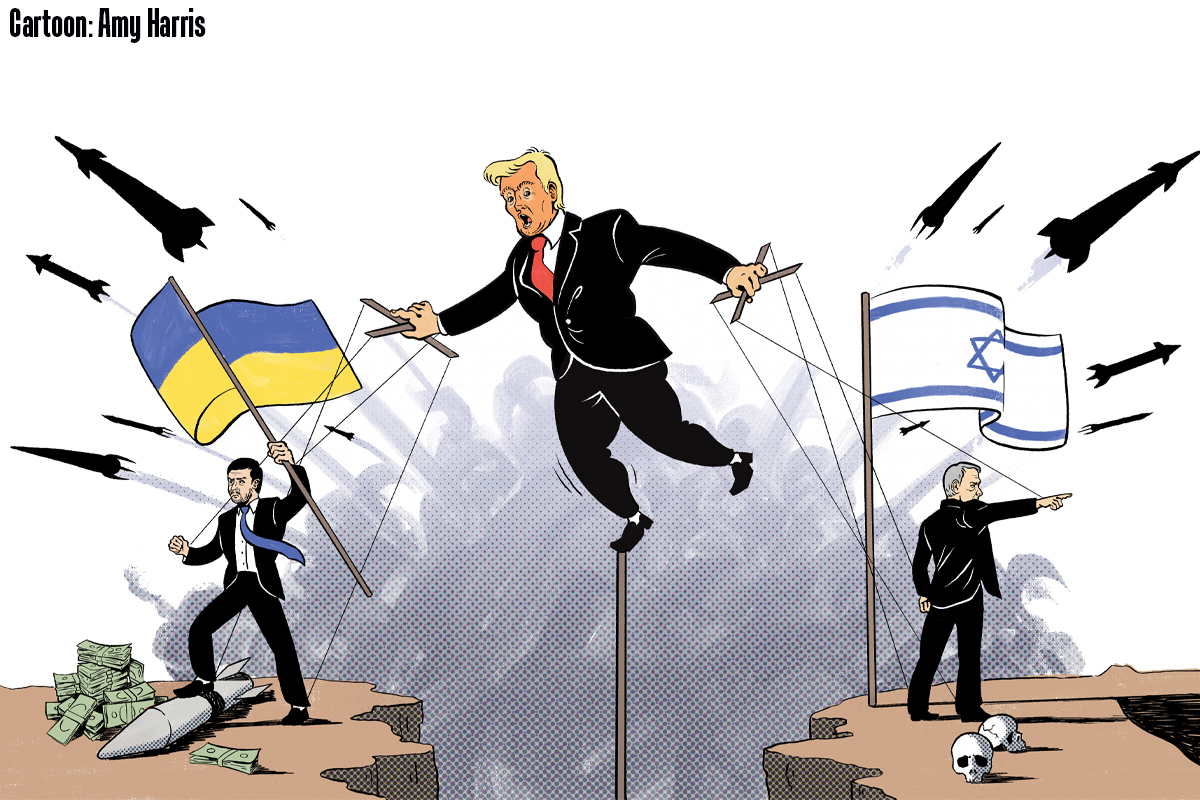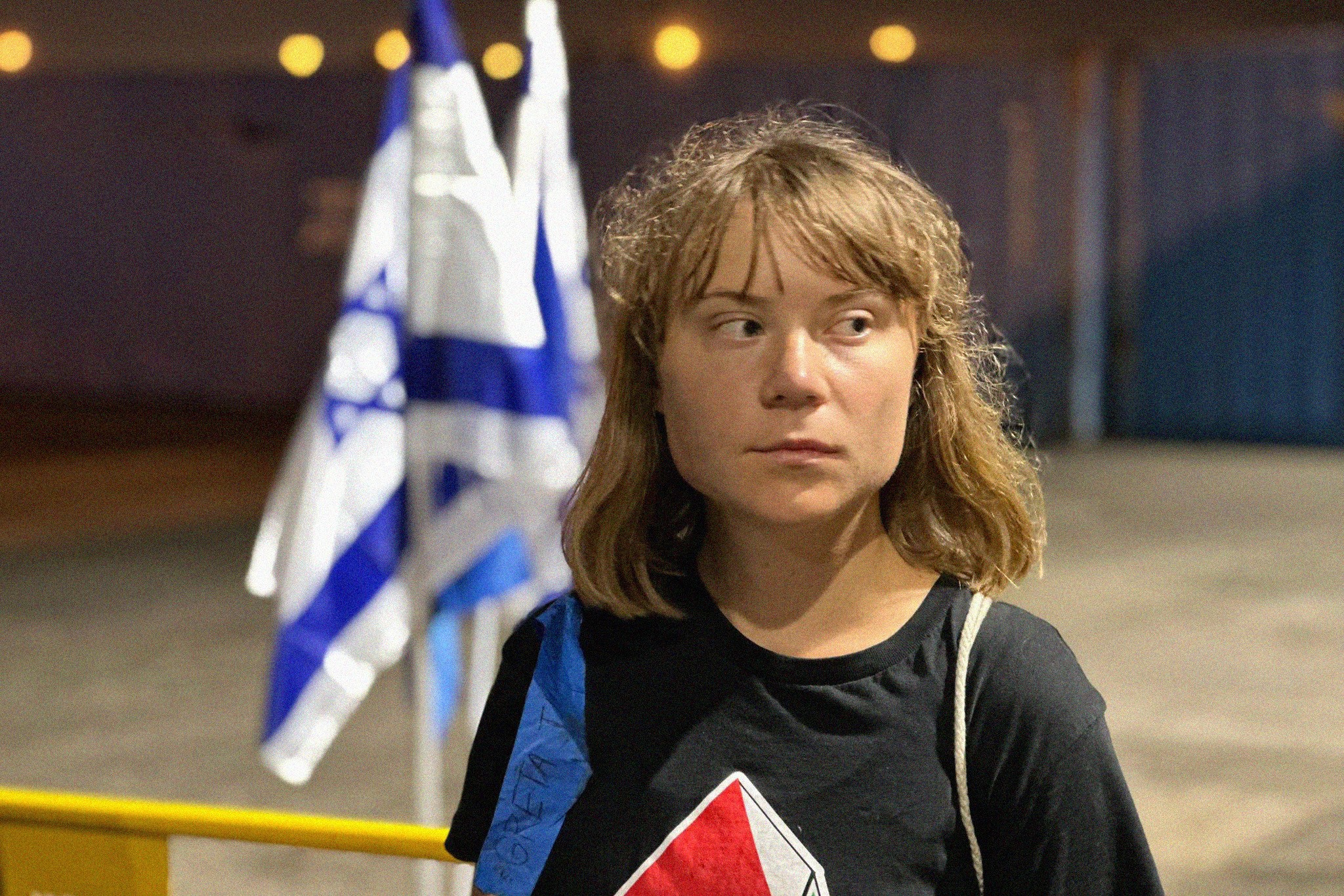The United Nations has warned that rising food prices will cause further unrest and upheaval. It is acknowledged that the present strife in Egypt and elsewhere in the ‘third world’ is fuelled by the rising cost of living.
Food prices have gone up worldwide by 75% since 2005. Since Gordon Brown became prime minister (not that long ago) milk prices have gone up by 17%, eggs by 28% and bread by 34% in this country. Other items have shown even sharper increases. Pigfeed prices have doubled over the past year. Farmers are losing £26 on each pig and thousands of farms are going to the wall. There’s no sign of any letup. In the same way as we seem to have seen the end of cheap oil, this could be the last of cheap food.
Food has been cheap in the past because farmers in the advanced capitalist countries have been cosseted and protected by the taxpayer. Big business rice farmers from Louisiana have literally dumped their surpluses on ‘third world’ countries, destroying the livelihood of local farmers in the process.
While agriculture in the advanced countries has been pampered, farmers in less developed countries have been neglected. Productivity on the land has crawled along – 1% a year, compared with 2.2% in the 1990s and 2.5% in the 1980s in the Asia and Pacific region. Big banks are reluctant to lend to small farmers there.
It is important to realise that most farmers around the world do not benefit from rising food prices. Most of them, though working on the land, have little or no land of their own and have to buy the food they eat. In other words the pattern of agricultural production across the globe has been dictated by the requirements of imperialism. More and more, production has been switched to the world market. The absurdity of this global division of labour is shown by the firm Young’s, who fly prawns to Thailand to be deveined (since labour is cheaper there) and then fly them back for sale in the UK.
Rice
So, in countries where they produce rice in abundance, rice is exported and the price of the basic staple is steadily getting out of reach for the poor. And rice is the staple diet of 2½ billion people.
Inevitably, governments are being forced to slap bans on food exports and subsidise its price for local consumers. This is going to them cost more and more. They have no choice. The alternative is food riots, and ultimately revolution. Countries are entering into bilateral deals, such as the one between the Philippines and Vietnam so as to ensure they can feed their people. The talk is of ‘food security’. Surely enough to eat is a basic human right? But it seems free market capitalism cannot provide that. So a ‘free market’ in food is increasingly coming under strain and under question.
Why are food prices soaring? Extreme weather events in the last year, has meant that crops have been affected. Only half of Australia’s usual wheat harvest will be produced this year because of droughts, and in other countries flooding has destroyed crops. But extreme weather conditions are not just a chapter of accidents, but a part of the process of climate change. In the case of rice, now at a 20 year price high, Australian farmers are having a torrid time with drought. Australian agriculture could be the first major victim of climate change, partly caused by human activity in the form of carbon emissions. US rice farmers, on the other hand, are moving into more profitable lines of business.
In particular, 30% of US corn is going to make bio-fuels. One SUV fuel tank filled up with ethanol made from maize, would feed one person for a year. The 30 million tonnes of extra maize going to ethanol this year amounts to half the fall in the world’s overall grain stocks. The low level of food stocks at a time of food crisis makes a tempting target for speculators, thus pushing up prices further.
Petrol prices
The diversion of resources to producing ethanol while millions go hungry is insane, but that’s capitalism for you The absurdity of the bio-fuel scam in the US is shown by the fact that it is only profitable because there’s a 51c tax credit on maize grown for ethanol and a 54c protective tariff against bio-fuels imported from Brazil and made from cane sugar. This is just dishing out subsidies to agri-business. So the food crisis is manmade. It doesn’t stem from an absolute shortage of food. It stems from the fact that capitalism is a system where production is for profit, not for need.
Apart from climate change and bio-fuel production, the petrol price hike has put up the price of food everywhere. Oil is now over $100 per barrel, and likely to stay there. Oil is all-important in modern farming. Petrol is used for planting, for irrigation, for fertiliser and for harvesting. First rising oil prices put up food prices. Next ethanol production is stimulated by rising oil prices; then the land diverted to producing bio-fuels causes food shortage and further jacks up the cost of living. It’s a classic vicious circle.
The rich countries have had oil on the cheap for a long time. Fossil fuels that were formed in the ground 300 million years ago have been guzzled by capitalism in a couple of centuries. We could be seeing ‘peak oil’, after which petrol extraction will go into secular decline. Capitalism, addicted to cheap oil, would have to go cold turkey.
Sustainable
The only ‘good news’ part of the story of food price rises is that it shows some people are better off. The average Chinese eats 60kg of meat a year now compared with 4kg in 1962. But a permanent improvement in living standards is unsustainable without planned production, as now capitalist farming just gulps up more and more resources. It takes 7kg of grain to produce 1kg of beef. And it takes between a hundred and a thousand times as much water to produce a kilo of beef as a kilo of wheat.
We already have headlines proclaiming ‘water becomes new oil’ (Observer 9th December 2007). The rapacious and shortsighted devouring of resources has already meant that in much of the world water is scarce. How is this possible? It takes 27,000 litres of water just to make a T-shirt. Capitalists gobble up natural resources just as they waste the nerves and sinews of working class people in the cause of profit with no concern for the future.
The increase of food price has forced the United Nations World Food Programme to appeal for an emergency $500m to meet its existing commitments to the world’s hungry. Its budget must go up to $3.4bn just to feed the 73 million people most in need. It’s a drop in the ocean.
Protests
33 countries face unrest because of food price rises. Protests have taken place in Egypt, where dairy products went up 20% and oil 40%; in Uzbekistan; in Bolivia; and in Indonesia, where soya bean prices rose 50% in a month and more than 125% in a year. In Bangladesh, where people spend up to 70% of their income on food, more than 50,000 households are getting emergency food after high rice prices.
We believe humanity can face down the problem of food shortage. But we can do so only when we are aware what resources are available, what our most urgent needs are and how we can plan to satisfy those needs. We must take over the land and all the resources on it. People don’t count under capitalism if they don’t have any money. Socialism is a system where people come first.






